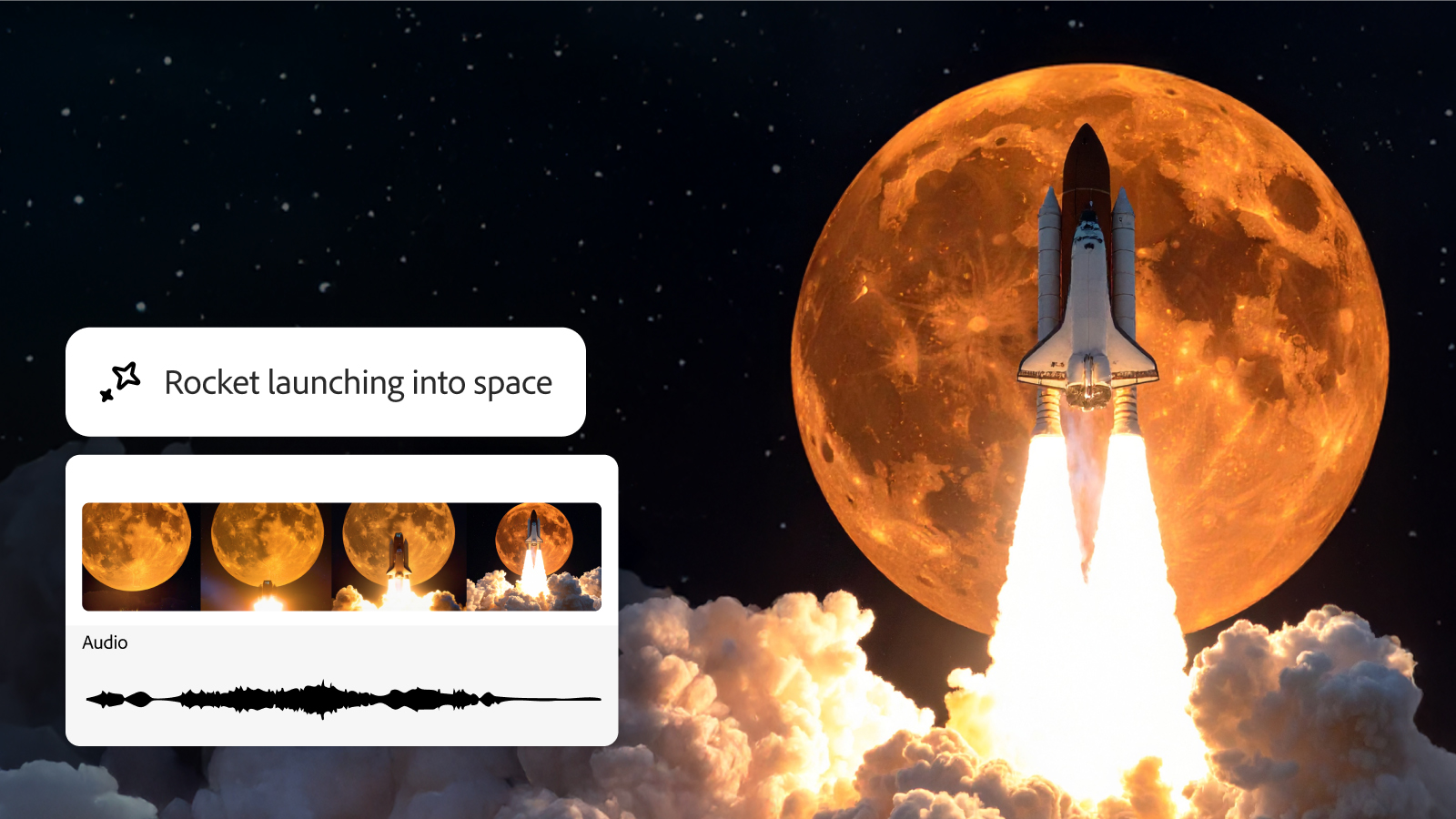The best camera for beginners in 2025: perfect cameras for learning photography
Forget your phone! Get one of the best cameras for beginners and start taking photos and video with amazing quality
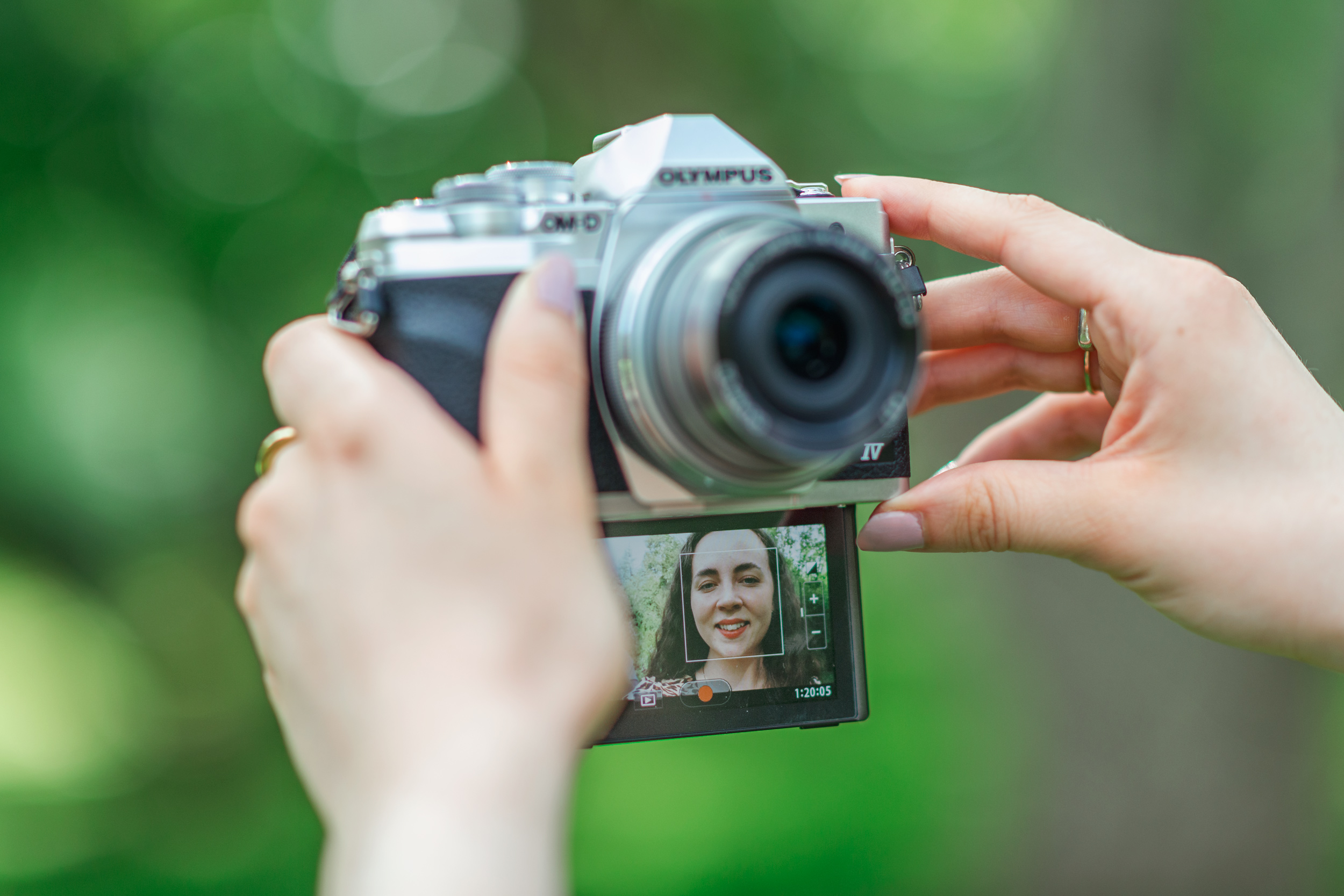
As someone who used to teach photography, I've been asked about the best camera for beginners for years. And my answer has always been the same: look for a camera that's not too expensive, is simple to use but capable of advanced shooting to support you while you grow, and above all offers great image quality.
The latter point is important, because there's a notion that beginner cameras are only good for novices. But the best cameras for beginners can take photographs that are every bit as good as any other camera; I've had magazine features published that were taken with entry-level cameras!
My top choice is the Canon R100, a super affordable camera that's both compact and capable, and gets you into Canon's fantastic ecosystem that will support you as your skills grow. But my personal recommendation, if you don't have a bee in your bonnet about sensor sizes, is the Olympus E-M10 Mark IV, which is bursting with features and is part of the most portable camera system on the market.
I've tested hundreds of cameras (and helped train just as many photographers since I started teaching in 2014!) and, while any of the cameras I've listed below will do a great job, some will do it better than others depending on what you actually shoot.
Don't forget that the lens you use is just as important as the camera itself. Cameras are sold either "body only" or with a "kit lens" – typically a starter lens with around a 3x optical zoom to cover general-purpose shooting. So I've recommended a kit lens for each of my selections (which are almost always the standard bundle option) to make sure that you can get shooting as soon as your camera arrives.
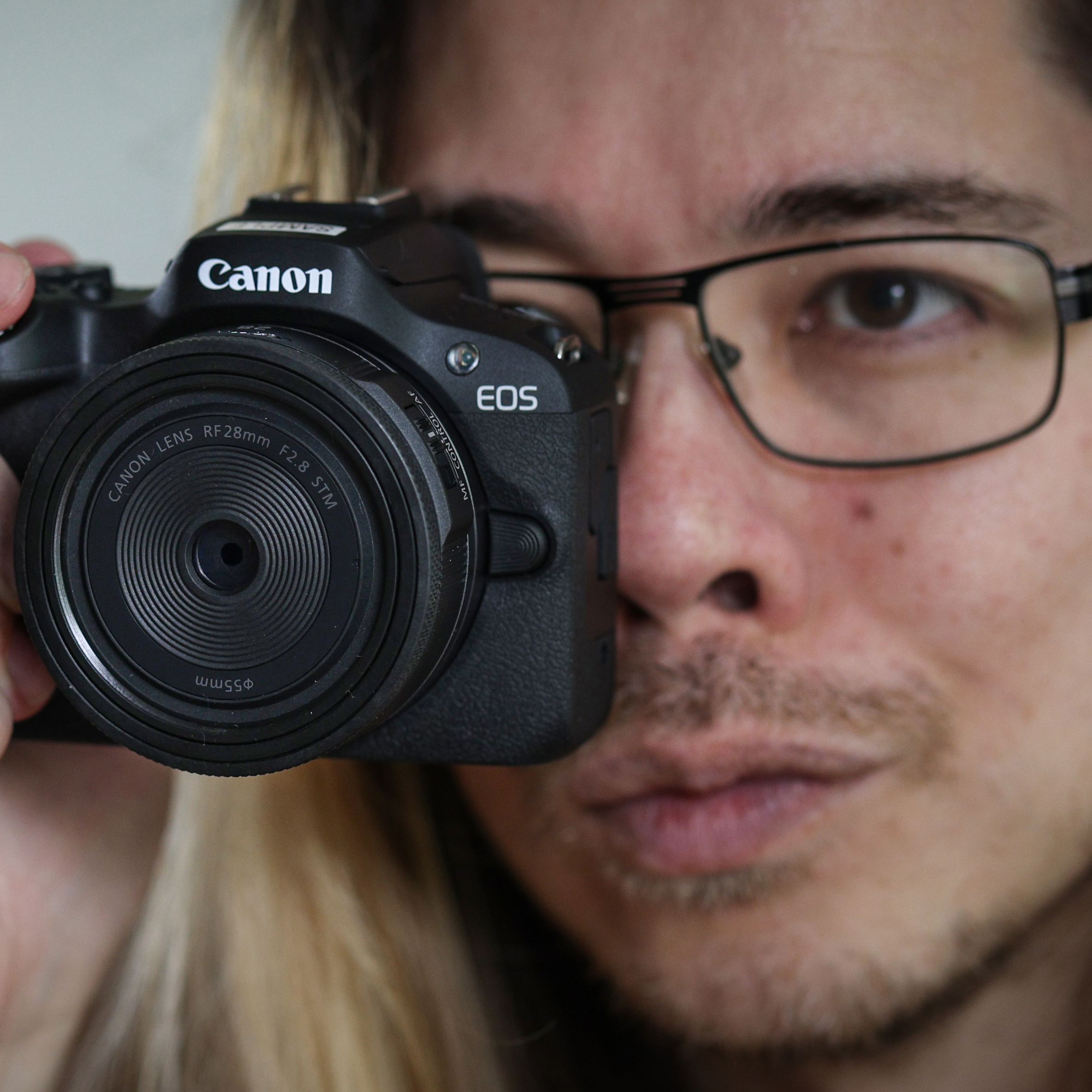
I started as a photography trainer in 2014, teaching a lot of beginners how to get the best out of their kit. I've written tutorials for publications like PhotoPlus – The Canon Magazine to help newcomers master their kit. I also host talks on getting started with your camera and beginner photography equipment at national exhibitions like The Photography & Video Show.
The Quick List
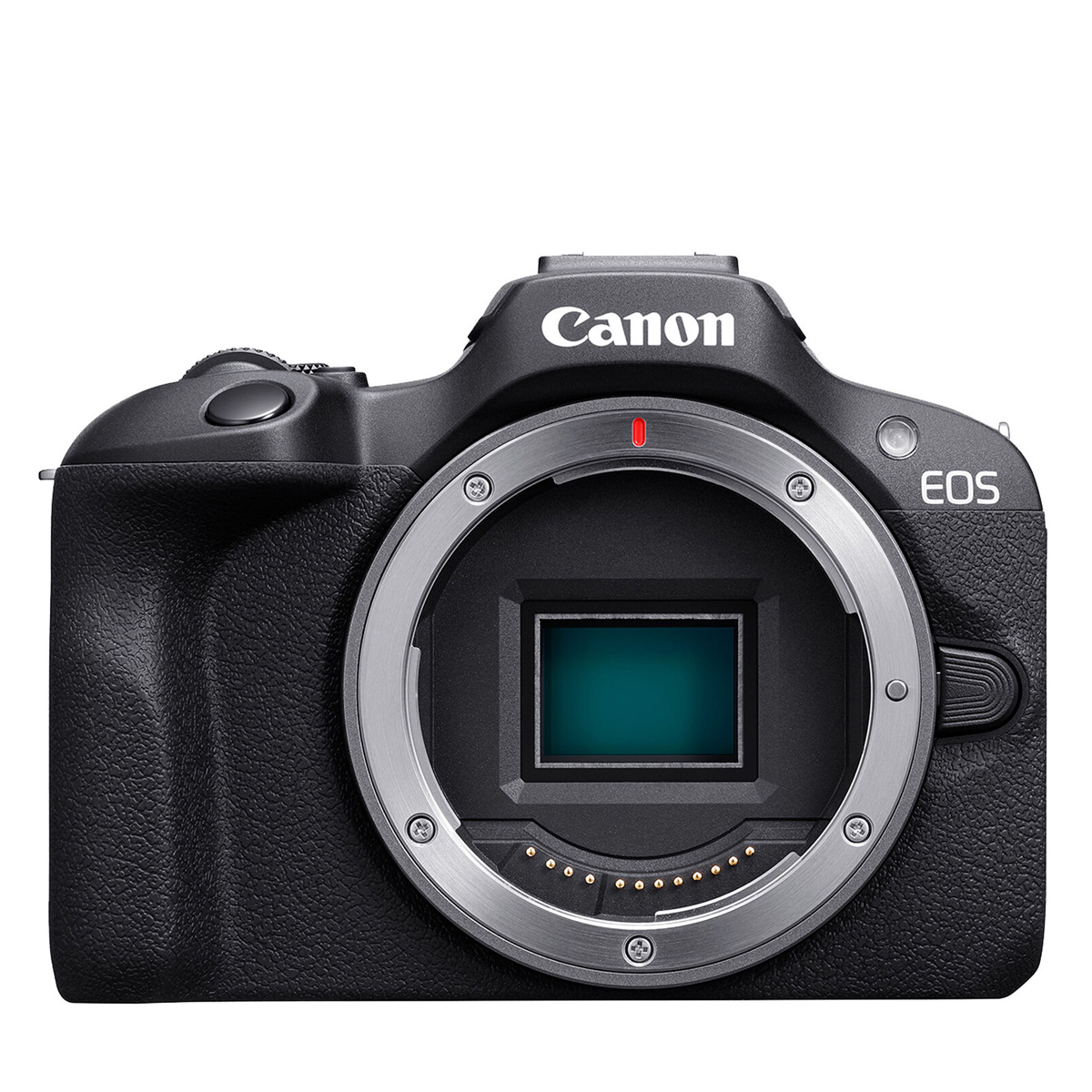
The R100's guided menus explain what the different modes do, and Canon has combined this with its pro-level autofocus tech, 24MP APS-C image quality, 4K video and cutting-edge RF-mount lenses – all of which makes this the best overall for newcomers.
Read more ↵
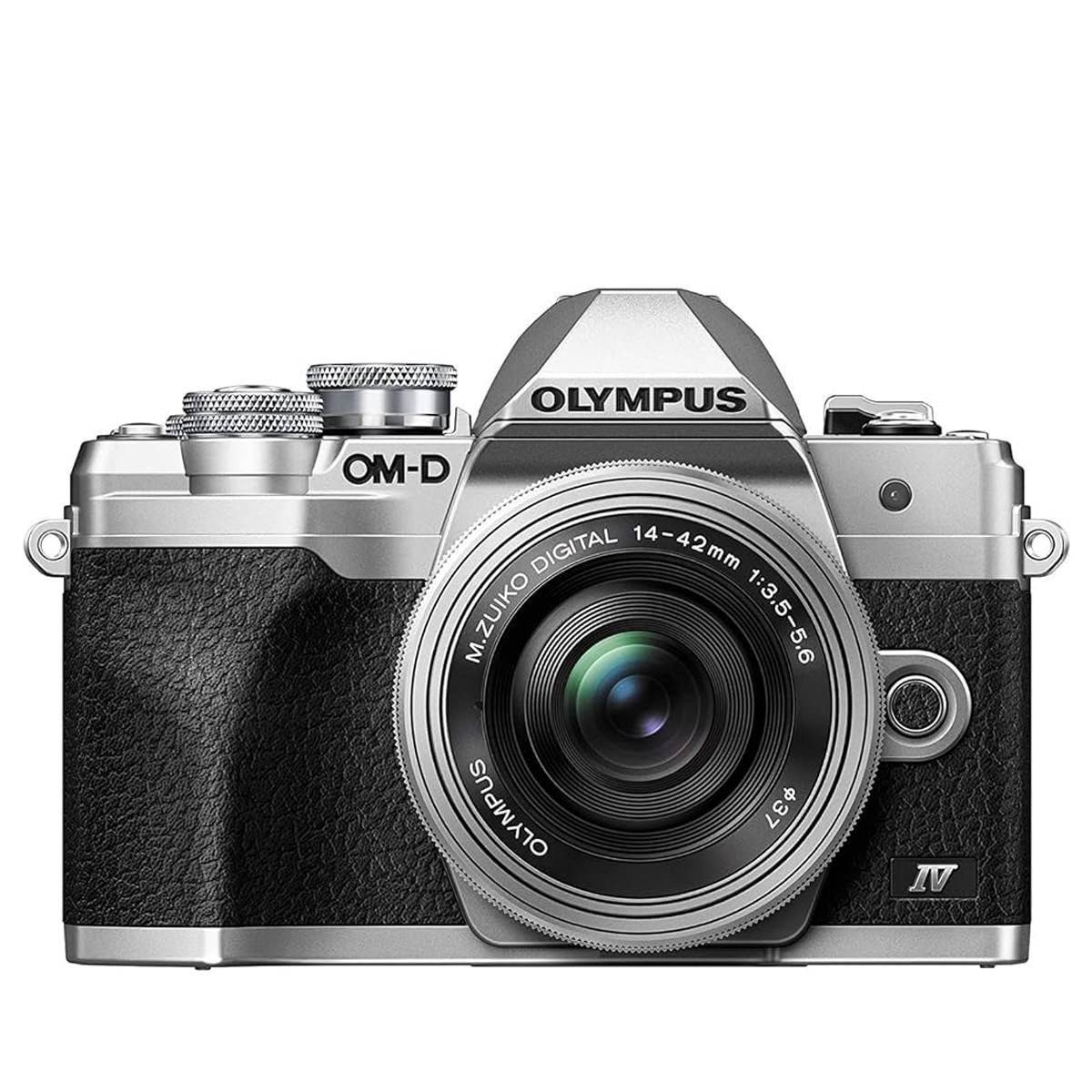
My personal pick! It's very compact, boasts brilliant stabilization for crisp images, and has guided menus to explain the modes. Its 180°-tiltable touchscreen makes it easy to shoot selfies, record handheld vlogs, or capture stills or 4K from low angles.
Read more ↵
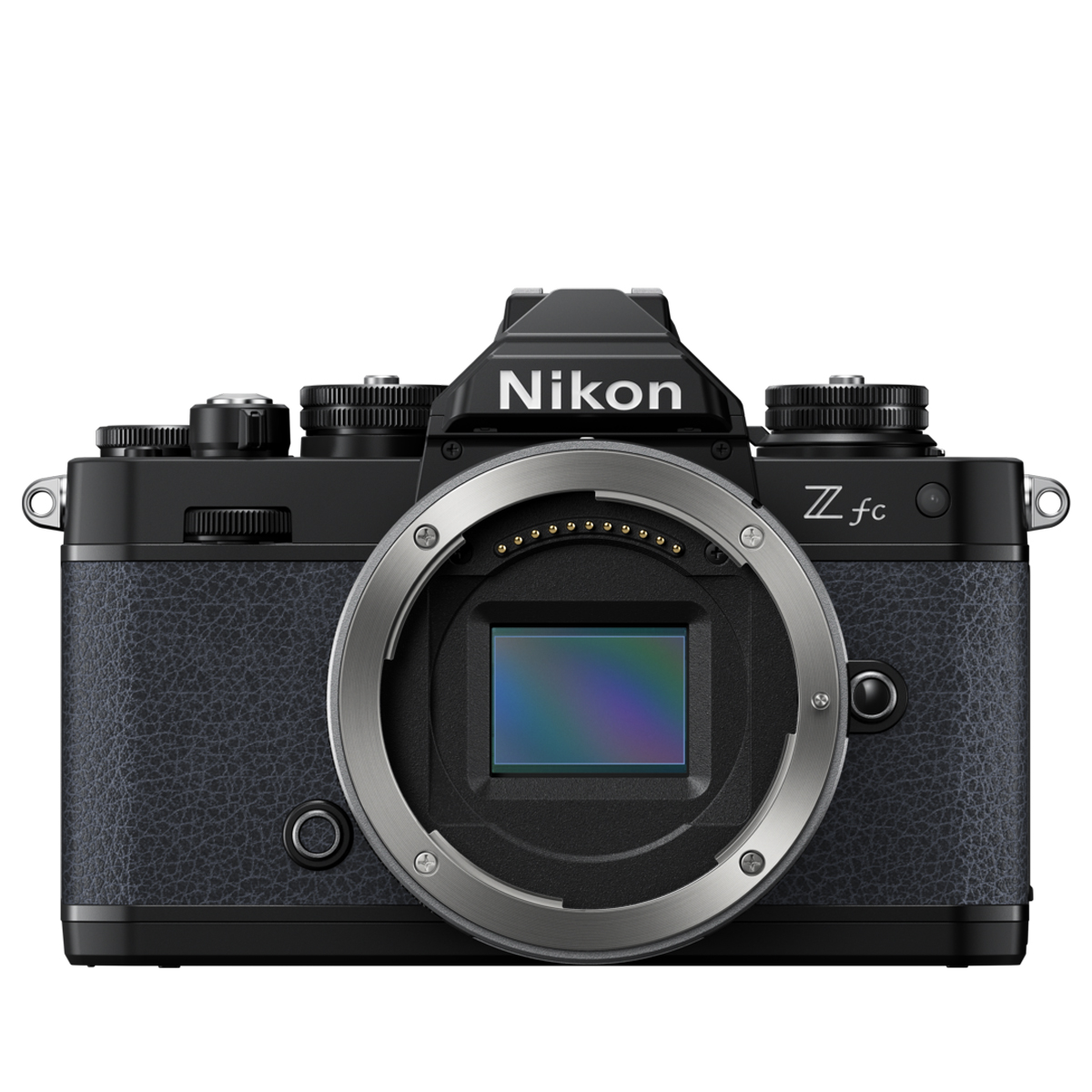
The Nikon Z fc is a great starter camera because a) it's capable and b) it inspires you to shoot. Despite its gorgeous retro styling on the outside, there is nothing outdated about the cutting-edge tech inside, with a 20.9MP APS-C sensor and 4K video.
Read more ↵
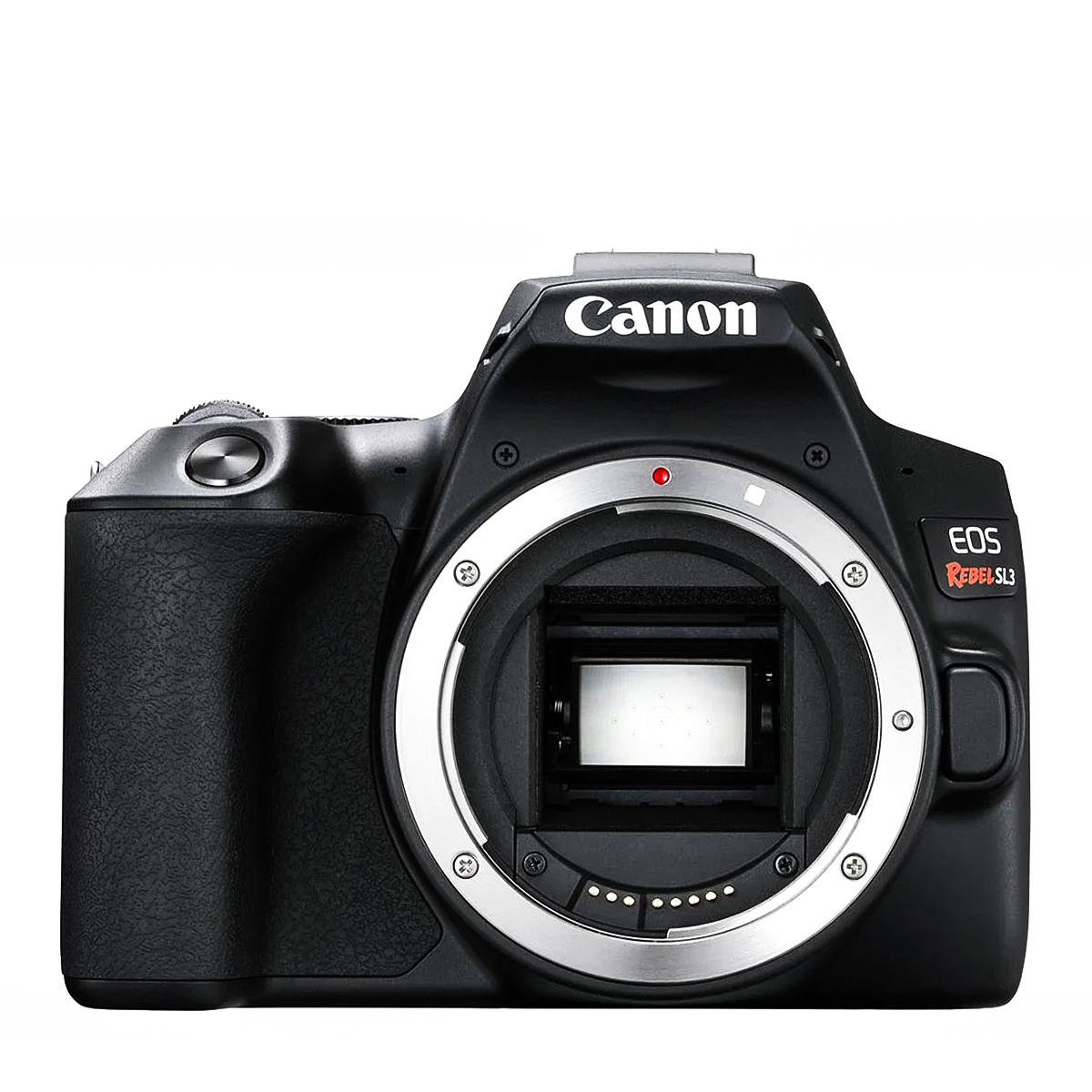
DSLRs are becoming harder to find, but they're still a great choice thanks to their cost and the affordability of their lenses. This is my favorite beginner DSLR, due to its user-friendly nature, its 24MP stills and 4K video recording.
Read more ↵
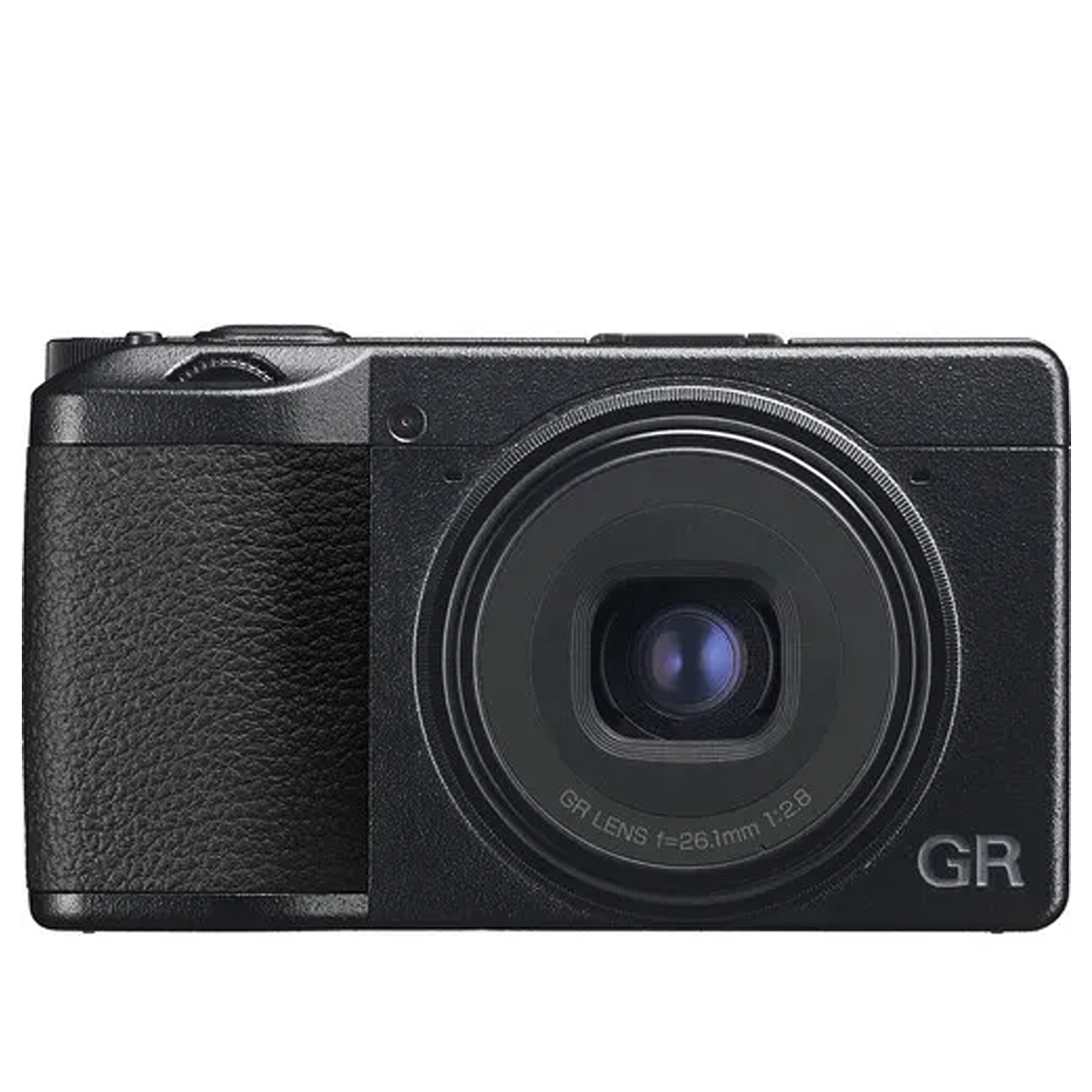
Want fantastic, fuss-free stills? I love that this compact camera is powerful, pocketable, and has a built-in lens with ND filters – making it easier to shoot in harsh light. Its large APS-C sensor gives better image quality than using a phone, too.
Read more ↵
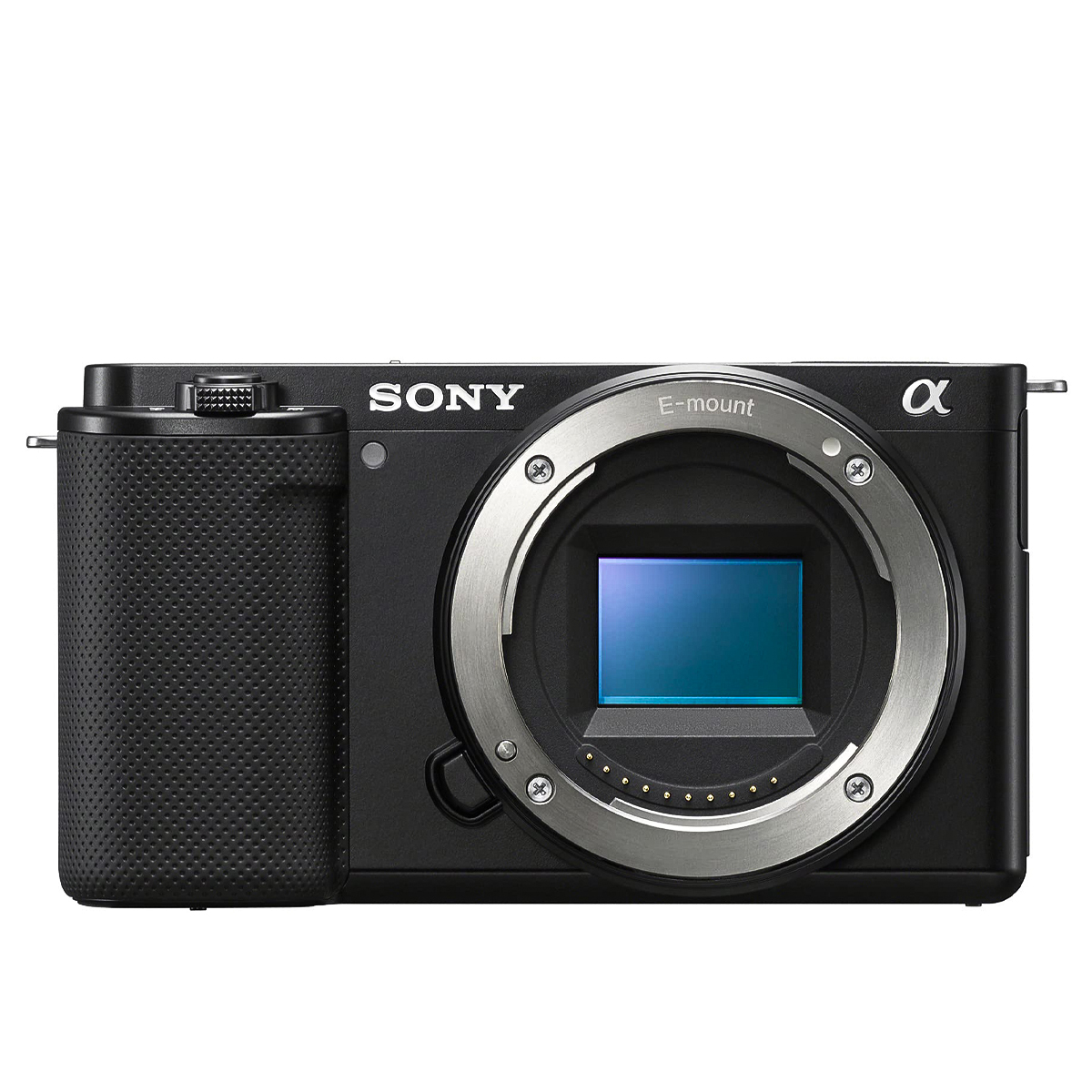
Want to start your content creation career? I point aspiring vloggers, videographers and YouTubers towards this marvelous mirrorless camera from Sony, which is packed full of video-focused features to get you started in the medium.
Read more ↵
Best camera for beginners
Why you can trust Digital Camera World
Best camera for beginners overall
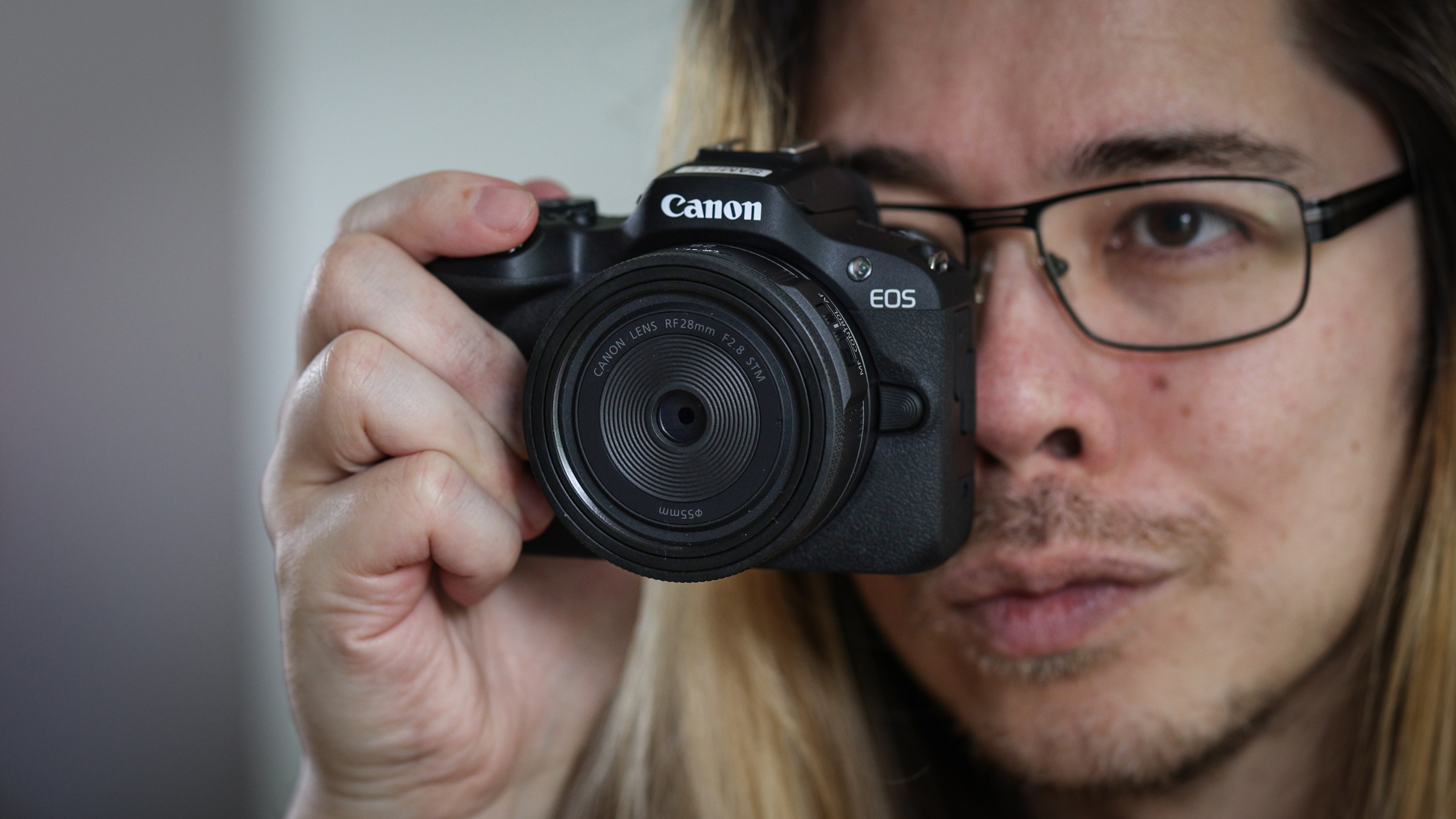
Specifications
Reasons to buy
Reasons to avoid
✅ You want guided menus: The R100's menu system explains what the different modes do, helping you understand the camera.
✅ You want great autofocus: This uses the same pro AF system found on Canon's top DSLRs, making sure that right parts of your shots are sharp and in focus.
❌ You want to shoot 4K: The 4K mode suffers a 1.55x crop and only offers contrast autofocus, so this isn't the best camera for filming 4K.
❌ You want touch control: The R100 omits a touchscreen to keep costs down. Everything can be controlled via the D-pad, buttons and dials, but touch would have been nice.
🔎 Canon EOS R100 Simple and affordable, this is a no-nonsense stills camera with great image quality that will help you get to grips with photography. ★★★★½
The EOS R100 has been tailor-made for beginners, and it's pretty much a home run. The controls are simple and the menus guide you through the modes, to help you understand how the camera works.
It packs Canon's Dual Pixel CMOS Autofocus system (seen on Canon's professional DSLRs) with face tracking and eye detection for photographs, which helps ensure that you don't miss focus when your mind is on things like settings and composition.
Its 24.1MP APS-C sensor delivers great image quality, and Canon's RF mirrorless mount is home to some of the most advanced lenses on the market. It also has the benefit of being compatible (via an adapter) with the best Canon DSLR lenses.
As the most affordable mirrorless offering from Canon, there are a couple of compromises that mainly affect video shooters; its screen is fixed and doesn't support touch input, while 4K suffers a crop and loses the Dual Pixel AF (reverting to slightly choppier contrast AF).
If either of those are deal breakers, I recommend the slightly pricier Canon EOS R50 – but if you're strictly looking to learn photography, this has everything you need at an unbeatable price.
Recommended kit lens: Canon RF-S 18-45mm f/4.5-6.3 IS STM
Read my full Canon EOS R100 review
Features | It has a killer AF system and guided menus for beginners, but lacks things like touch control, tilting screen and image stabilization. | ★★★ |
Design | Small, sleek and simple – the body is ultra compact and lightweight, with a single control dial for ease of use. | ★★★★ |
Performance | I can't fault the image quality or performance for stills, though 4K video does have compromises | ★★★★ |
Value | This is unbelievably good value for money – for stills shooting, it has everything you need | ★★★★★ |

Best beginner camera for features
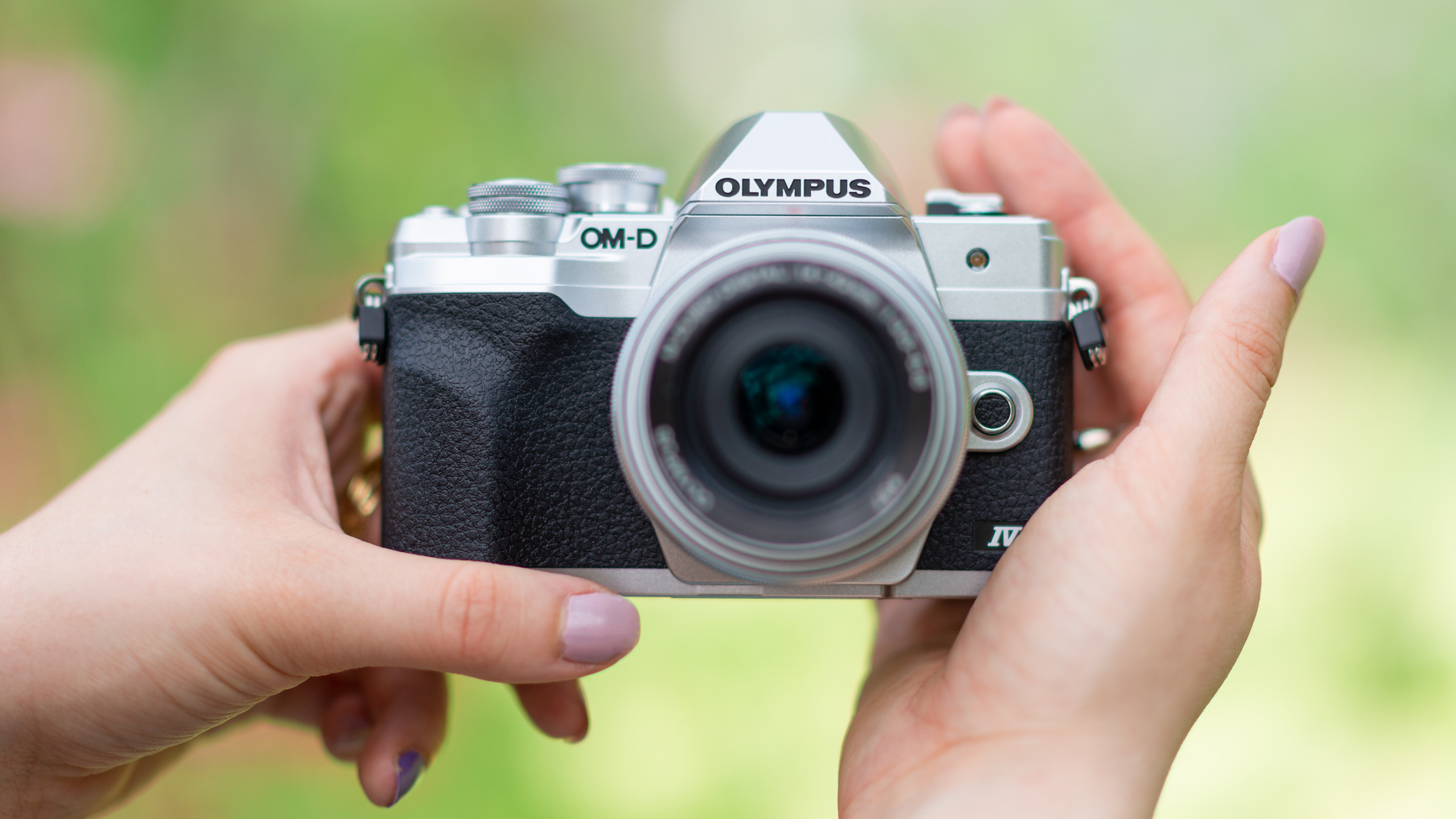
Specifications
Reasons to buy
Reasons to avoid
✅ You're creative: With 28 Scene modes for any situation, and 14 Art Filters to pre-produce your images, this camera really does unlock your creativity.
✅ You want in-body image stabilization: This is the only entry on my list that compensates for camera shake by stabilizing the image sensor, for rock-solid sharp shots.
❌ You want bokeh: Want beautiful blurry backgrounds? You can achieve them on a Micro Four Thirds camera but, all things being equal, an APS-C camera does them better.
❌ You want phase detect AF: The contrast-detect AF is good, but it's not as robust or "sticky" as the phase detect system of cameras like the Canon EOS R100 or Nikon Z fc.
🔎 Olympus E-M10 IV The most feature-packed camera on this list, this ultra-compact and capable system is ideal for unlocking your creativity. ★★★★★
This is the most advanced entry-level camera I've ever used! Absolutely packed with features, it will directly improve your shooting skills and help you grow them.
The main way it does this is via in-body image stabilization, which stabilizes the image sensor to compensate for camera shake when shooting stills and video – this really helps me get sharp photos and smooth footage.
That sensor is a Micro Four Thirds one, which is physically smaller than full frame and APS-C sensors, but still packs 20MP of resolution – not as rich as some rivals, but packs beautiful image quality. I've had double-page spreads and magazine covers published with images from this sensor!
The smaller sensor also means that both the camera body and the lenses are truly compact – unlike APS-C systems, where the cameras are small but the lenses are often still big.
This means you can have a much smaller kit bag with less weight than an APS-C setup (or more kit for the same weight) – a big plus if you don't want to lug around heavy kit, especially if you have a disability or physical ailment.
With 4K video and a tilting touchscreen that flips 180° for selfies or presenting vlog-style to camera, this entry-level body can do pretty much everything. I'll also note that it has the best camera app to transfer images to your phone via WiFi.
Recommended kit lens: Olympus M.Zuiko 14-42mm f/3.5-5.6 EZ Pancake
Read our full Olympus OM-D E-M10 Mark IV review
Features | You simply won't find more fully-featured camera in this category. | ★★★★★ |
Design | Classic film camera-styled design, with flipping selfie screen, and a tiny body – with tiny lenses! | ★★★★★ |
Performance | This is a truly fantastic camera, but be aware that the physically smaller sensor lowers headroom for printing and ISO sensitivity. | ★★★★ |
Value | This body packs the features of a much more expensive and advanced camera. | ★★★★★ |
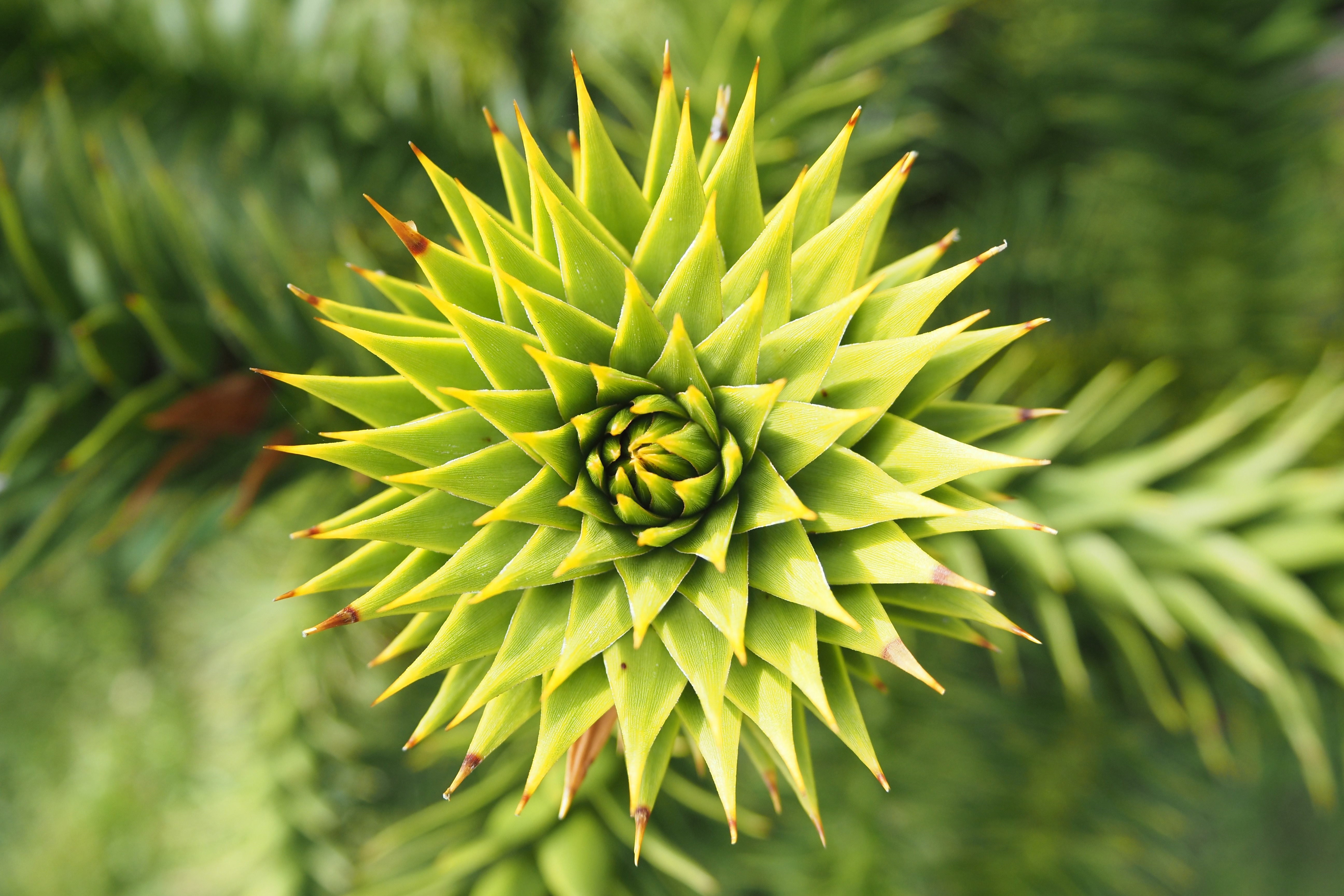
Best beginner camera for inspiration
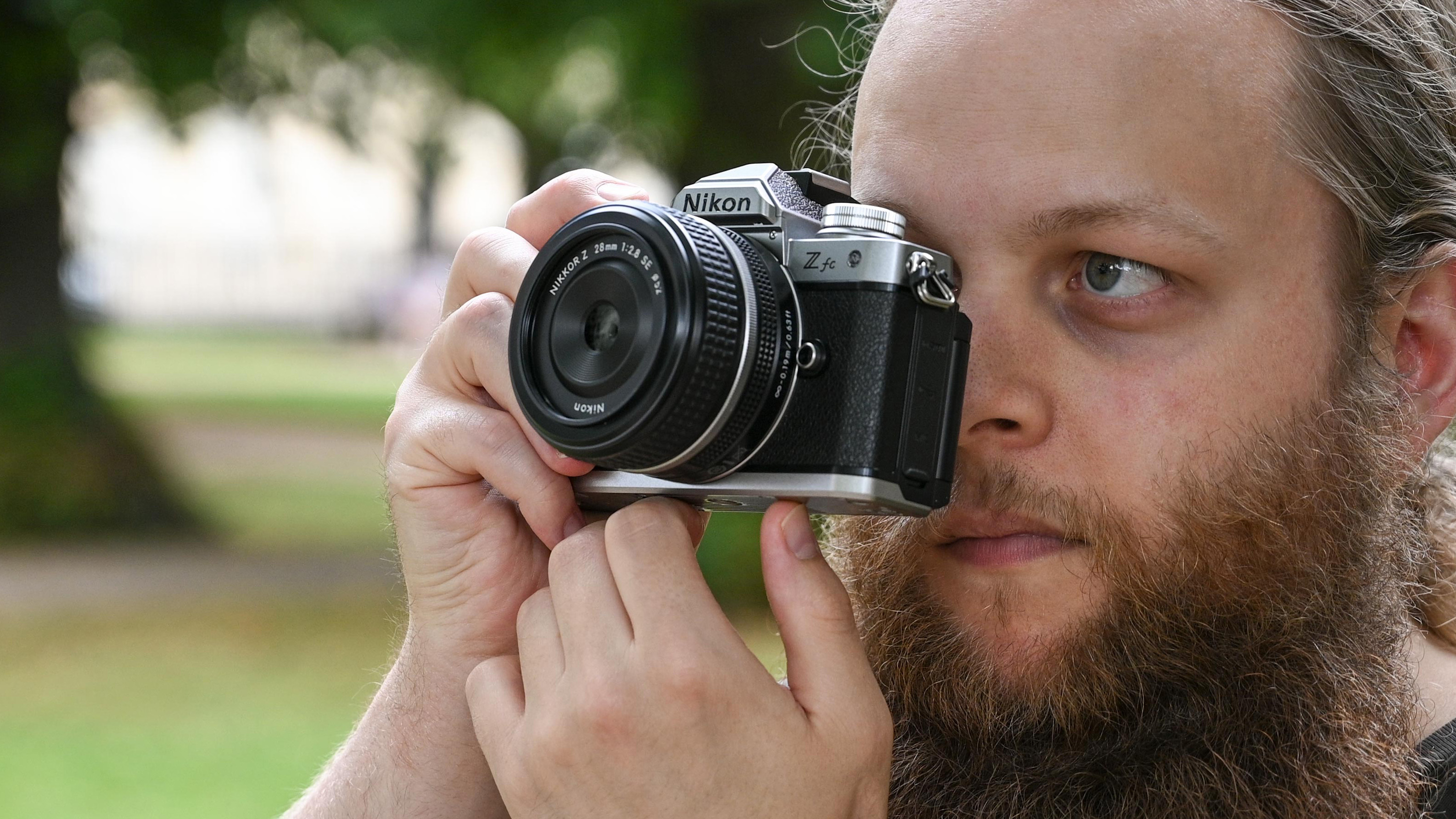
Specifications
Reasons to buy
Reasons to avoid
✅ You need motivation to shoot: Maybe it's the looks, but this camera has a intangible that makes you want to pick it up and go out to take pictures.
✅ You want an articulating screen: Other cameras on this list have a fixed or tilt-only screen, but the Z fc's is fully articulating – great for low-angle stills and especially video.
❌ You want a lot of lens choice: Nikon's line of Z-mount mirrorless lenses is quite small, especially for APS-C – but you can use F-mount DSLR lenses using an adapter.
❌ You need stabilization: There's no in-body stabilization, so you'll need a gimbal for video and you'll be relying on good technique or lens stabilization to get steady stills.
🔎 Nikon Z fc A gorgeous camera that takes gorgeous images and 4K video, and truly makes you want to pick it up and go out to use it. ★★★★½
The Nikon Z fc is a capable camera, but there are other models out there that are more capable as well as cheaper. What the Z fc has over the others, though, is a more intangible but critical quality: it makes me want to shoot with it. And when you're learning photography, having a camera that makes you want to get out and shoot is really important.
Externally, this is a beautiful retro camera that looks like an old film camera, with tactile dials for setting exposure, exposure compensation and ISO, and it’s truly a joy to use. But inside, it has the same technology as the Nikon Z50 – a great beginner camera that's a lot less snazzy and only has a tilting screen (unlike the fully articulating one on the Z fc).
The 20.9MP APS-C sensor may not have the most pixels you’ll find, but it still resolves beautiful images that are full of detail. And it can shoot continuous bursts at up to 11 frames per second, enabling you to capture fast action.
The Z fc takes crisp 4K 30p video, too (where that articulating screen makes it easier to use for filming), and it's all powered by a great autofocus system that offers face and eye detect to ensure sharp shots.
Don't be fooled by the prestigious looks; the Z fc is a great starter camera, and also one that will grow with you as your skills develop.
Recommended kit lens: Nikkor Z DX 16-50mm f/3.5-6.3 VR
Read our full Nikon Z fc review
Features | The resolution is quite conservative, and there's no stabilization, but the image quality, AF and burst speed are impressive. | ★★★ |
Design | Gorgeous retro film camera design, with a fully articulating screen – but no grip. | ★★★★★ |
Performance | The lower pixel count means that the APS-C sensor has better low-light performance and dynamic range. | ★★★★ |
Value | This is a decent value for a stylish APS-C camera, but less for a beginner camera. | ★★★ |
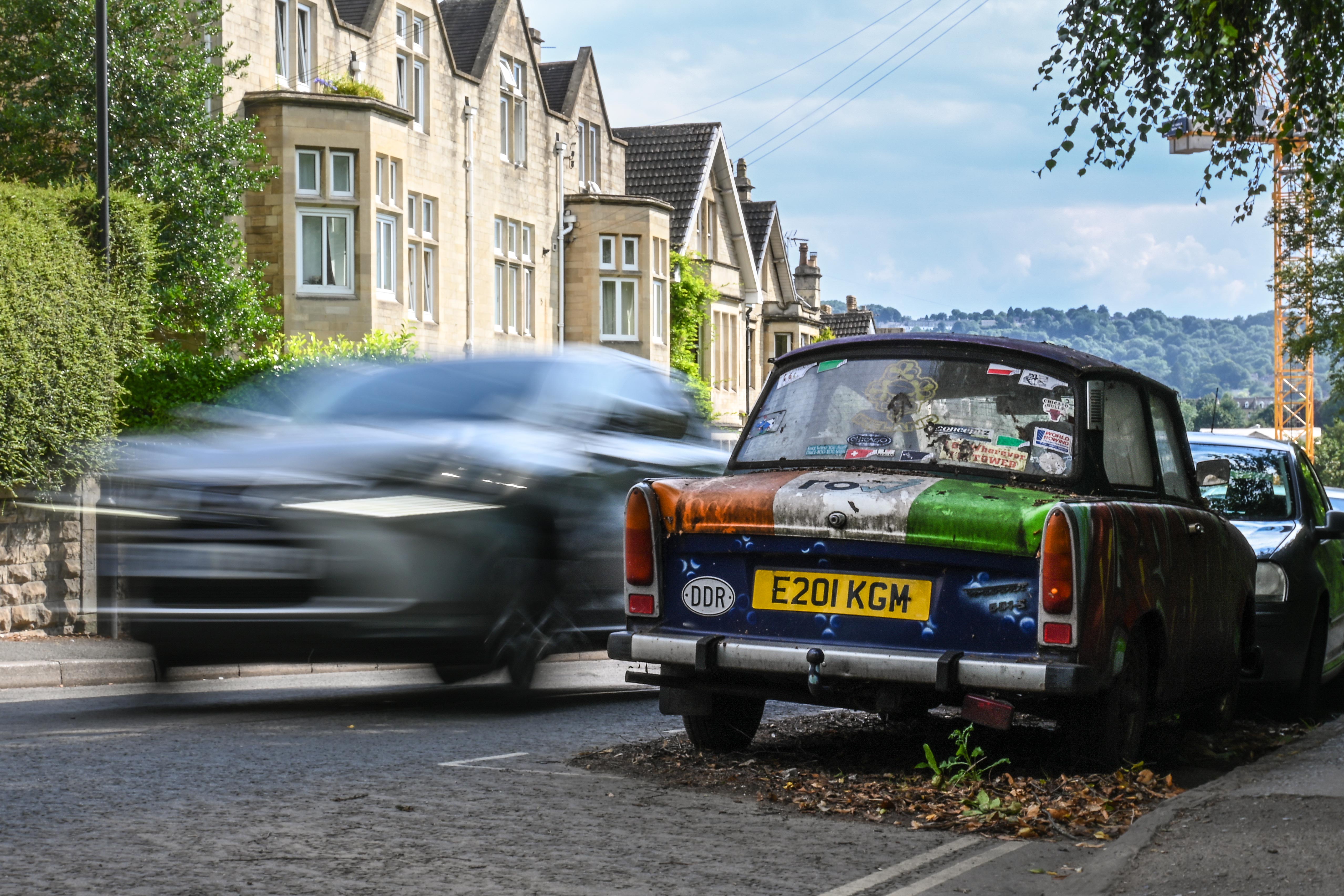
Best budget
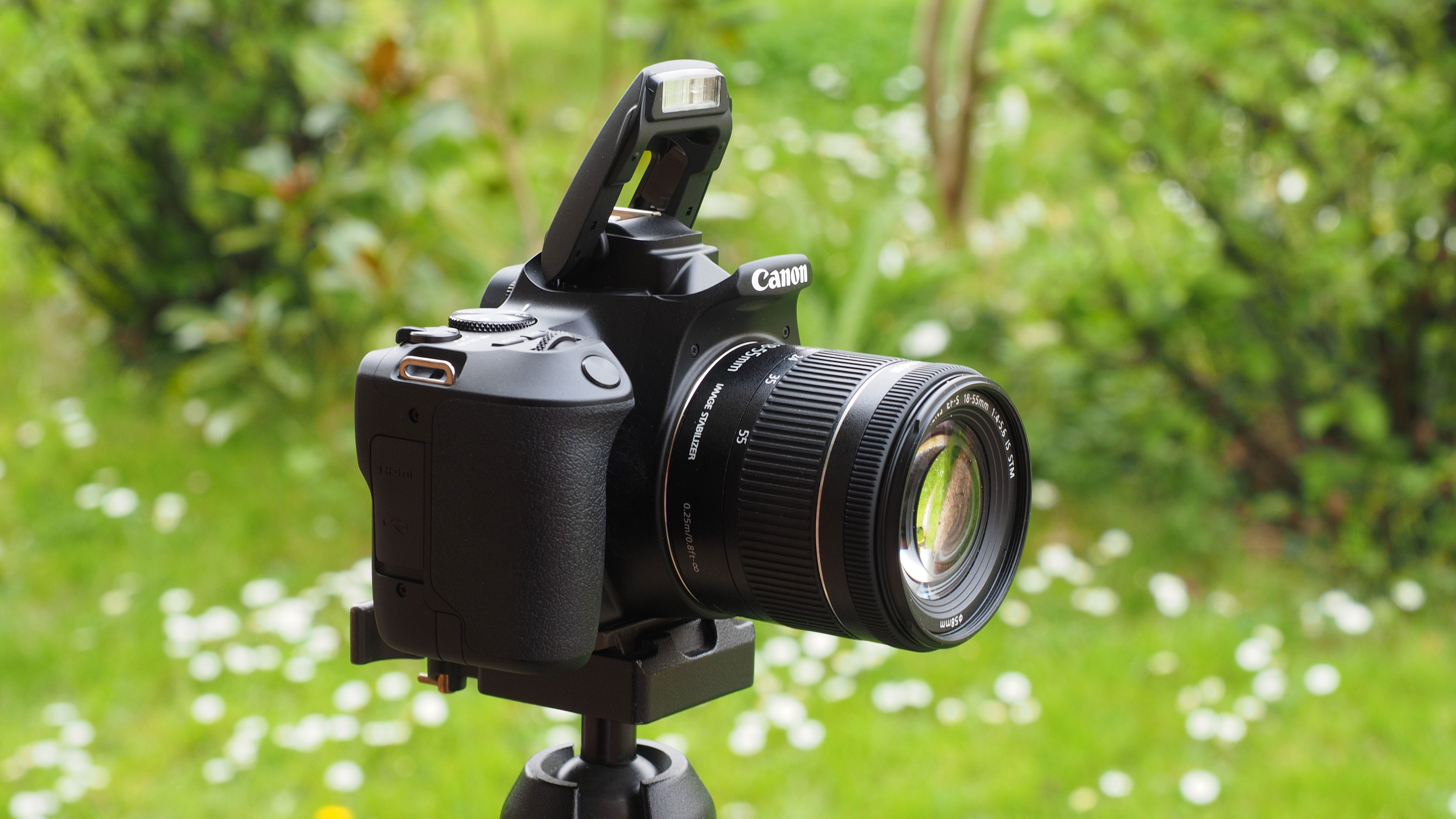
Specifications
Reasons to buy
Reasons to avoid
✅ You want a great selection of lenses: There are literally hundreds of lenses for this camera, and because they're on the older side you can get them at great prices too.
✅ You're focused on photography: If video features aren't of any interest to you, this camera is perfect as it's geared towards mastering the art of stills shooting.
❌ You want to shoot video: DSLRs aren't ideal for shooting video and this one is no different – go for the Sony further down this list.
❌ You want the best autofocus: With relatively few focus points and an old AF system, you won't get cutting-edge performance here.
🔎 Canon EOS Rebel SL3 / 250D A great nuts-and-bolts photo camera that's sturdy, simple and affordable – but not ideal for video. ★★★★½
Labeled the Rebel SL3 or the 250D depending on where you live, this isn't the cheapest DSLR you can buy, but I'd say that it's worth paying a little extra money to get a much better range of features.
It features Canon’s impressive 24.1MP APS-C sensor, which I've always got great results from, and boasts brilliant Live View shooting thanks to a fully-articulating touchscreen display and Canon's fast Dual Pixel CMOS Autofocus.
In fact, this is one of the only DSLRs where composing shots with the screen is downright preferable to using the viewfinder – so photography beginners graduating up from smartphones will be right at home here, and start feeling comfortable with using this camera from the word go.
While Canon packs 4K video into this delightfully small DSLR body, it does suffer from a number of compromises to maintain the price point – so if it's specifically video performance that you're after in your camera, I'd recommend you look to a mirrorless model (like the Sony ZV-E10).
DSLR tech may arguably be on the verge of extinction – time will tell – but I can still happily recommend this camera. It's great bang for your buck, especially as it uses Canon's older and cheaper EF-mount lenses, so you can build a high-quality lens collection really affordably.
Recommended kit lens: Canon EF-S 18-55mm f/4-5.6 IS STM
Read our full Canon EOS SL3 / Canon EOS 250D review
Features | The technology is five years old and DSLR-based, so features are pretty barebones next to any mirrorless camera. | ★ |
Design | A small, sturdy DSLR with an articulating screen, this has great ergonomics. | ★★★★ |
Performance | For stills, this is a great camera – but there are numerous video compromises, so look elsewhere if that's your main interest. | ★★★ |
Value | The EOS R100 now offers better value, but this is still great bang-for-buck. | ★★★★★ |
Best compact camera
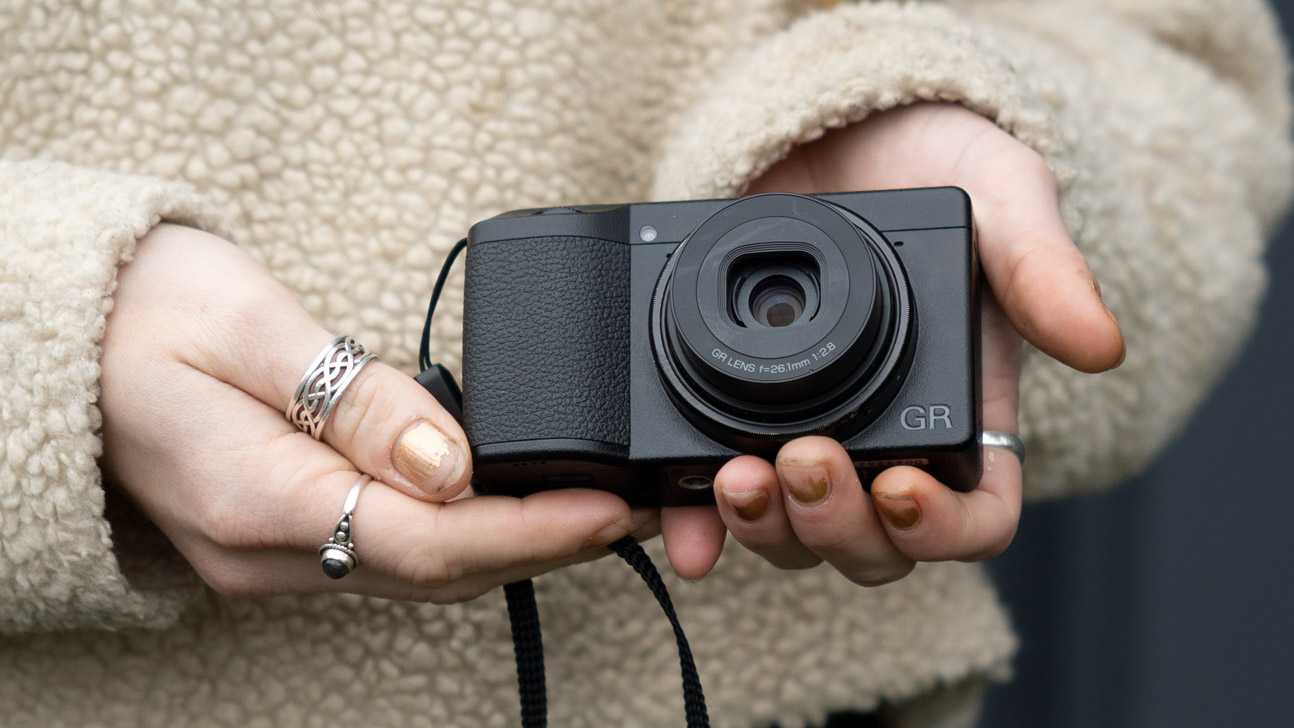
Specifications
Reasons to buy
Reasons to avoid
✅ You don't want to fiddle with lenses: The GR IIIx has a fixed 40mm lens, suitable for most shooting situations (and also effectively has two digital zoom modes).
✅ You want something pocketable: Thanks to its super compact size, the GR IIIx can be slipped into a pocket – but still packs as much power as a "proper camera".
❌ You want to shoot video: Intended primarily for stills, this camera is limited to FullHD video and doesn't offer 4K.
❌ You want to shoot portraits or wildlife: The GR series has been designed with street photography and reportage in mind, so the focal length isn't suitable for portraiture, wildlife, sports and other genres that need longer lenses.
🔎 Ricoh GR IIIx A compact camera that packs serious punch, this is a great option for everyday photography – though its fixed lens won't be for everyone. ★★★★½
You don't have to buy a complicated mirrorless camera with lots of lenses to take amazing-looking photos. I often recommend this to people who want the simplicity and portability of a smartphone, but with the power of a "proper camera".
The Ricoh GR IIIx slips into your pocket, offers straightforward point-and-shoot operation, but still relies on manual controls and a big APS-C sensor for high-quality images that blow your phone away and rival other cameras on this list.
Do note, however, that this is a camera with a fixed lens that does not zoom – though this does encourage you to "zoom with your feet", which actually makes you much better at finding composition than just zooming in and out on the spot!
I enjoyed the original GR III, but its 27mm lens was too wide for me. That's why I prefer the 40mm lens of the GR IIIx which is better for all-purpose shooting as well as just street photography. (There are 50mm and 71mm "focal lengths" that are achieved via cropping the image, though your photos will obviously be smaller.)
The camera boasts image stabilization, RAW photos for serious post-processing, built-in ND filters for shooting in harsh light, touchscreen interface, phase detect autofocus… though its video is limited to FullHD rather than 4K. The battery life is quite conservative, too, mainly because it operates entirely via the rear LCD rather than a smaller electronic viewfinder.
(No recommendation – lens is fixed)
Read our full Ricoh GR IIIx review for more details
Features | Built-in ND filters, RAW imaging and 2GB storage are all great – but video is only FullHD and you can't change lenses. | ★★★ |
Design | Truly pocketable, yet still features three exposure dials and touch interface – but no viewfinder. | ★★★★★ |
Performance | Fantastic for photographs, but this definitely isn't a video camera – and battery life is quite austere. | ★★★ |
Value | An expensive option for what it offers, but it's also a very specialist street camera. | ★★ |
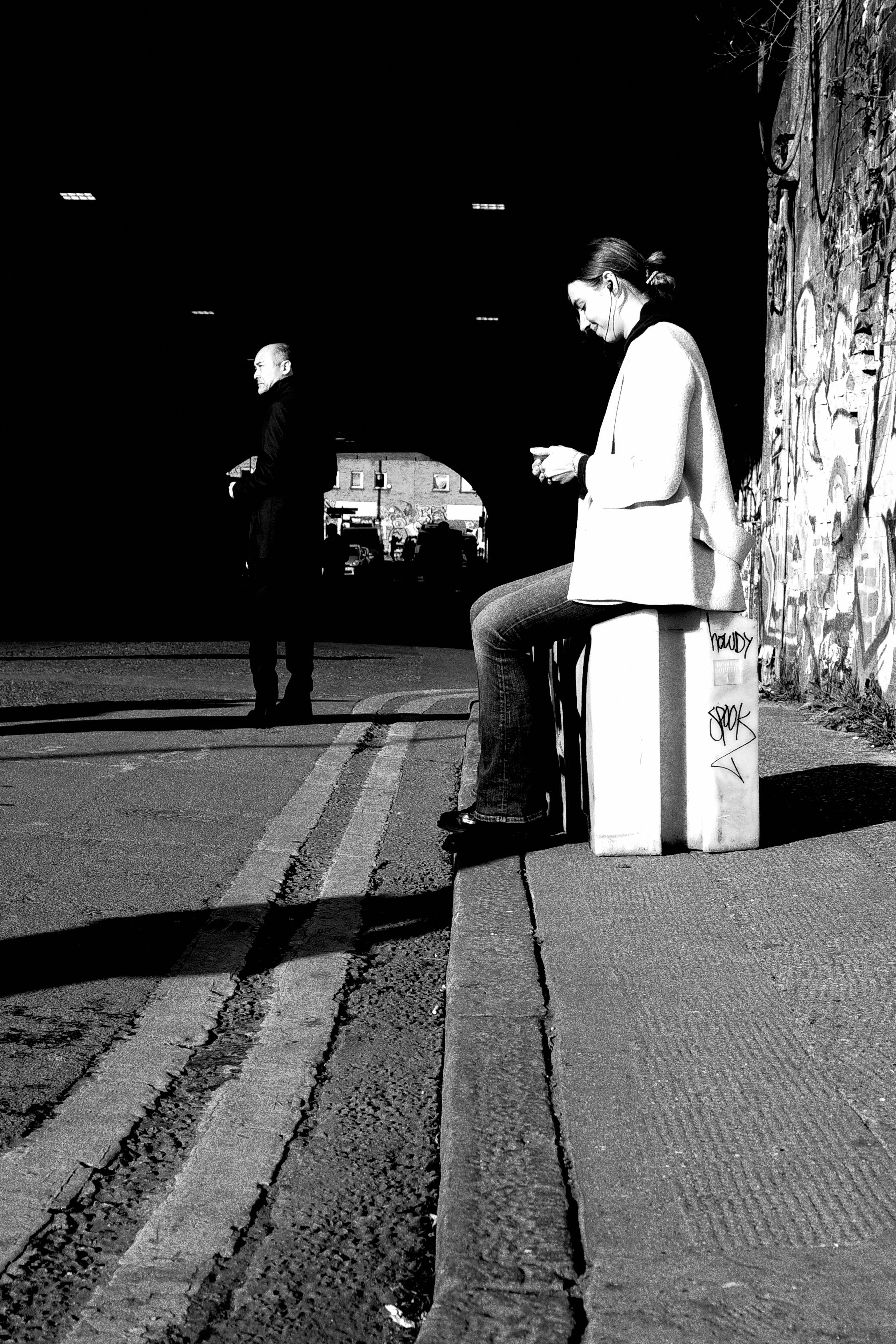
Best beginner camera for content creators
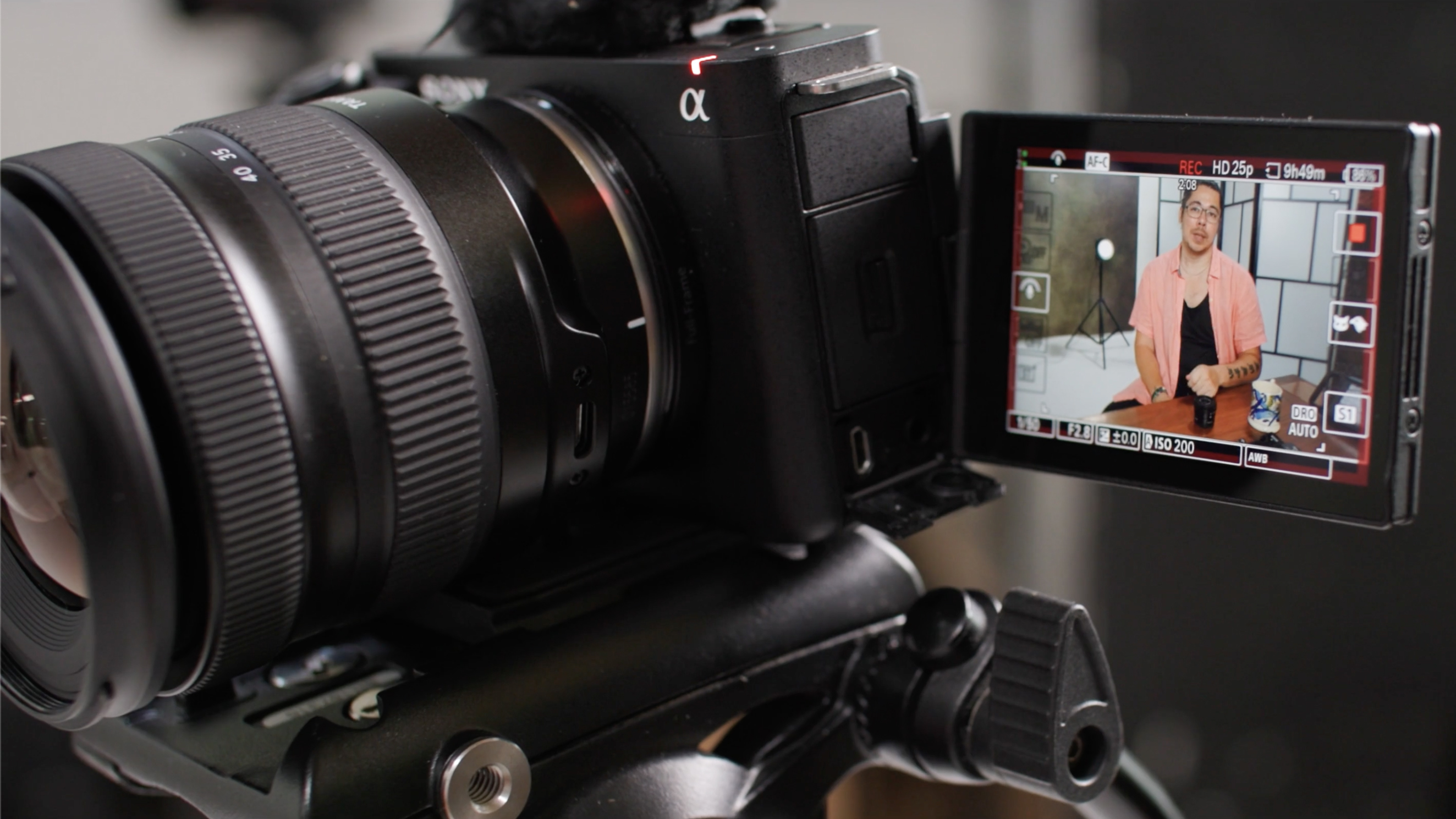
Specifications
Reasons to buy
Reasons to avoid
✅ You want to get into vlogging / content creation: With its video-first functionality and great autofocus, this is the ideal camera for vloggers and creators.
✅ You want great audio: I always recommend using an external microphone, but the ZV-E10 has an extra-large integrated mic that's better than other cameras.
❌ You want to shoot photos: It has a very capable sensor and great autofocus, but the lack of viewfinder means this isn't ideal for photography.
❌ You need to change settings while vlogging: While the screen flips around, so you can see yourself during filming, the menus aren't touch-sensitive – so you'll need to get up or master the art of pressing buttons on the back blindly.
🔎 Sony ZV-E10 If you want to get started in video, this is the camera for you! From its handling to its feature set, it's designed for vlogging and content creation. ★★★★
For beginners interested in content creation rather than photography, I recommend a dedicated video and vlogging camera – and the Sony ZV-E10 is perfect.
While it can take photos, it cuts back on the photography features as everything from the handling to the functionality is built primarily for video use. For example, there's no mode dial on the top as it's not designed to spend much time out of video mode.
Another case in point is the lack of an electronic viewfinder. This isn't useful for video, so here that space is put to better use for the extra-large microphone (with clip-on muffler), which I find performs better than the mics on most cameras.
It also benefits from Sony's excellent autofocus system, which is crucial for keeping your videos locked onto your subject(s). A plus point is the Presentation Mode, which tells the camera to focus on objects you hold in front of you – ideal for product demonstrations or showcases.
I think it's a shame that there is no in-body image stabilization, and it's a glaring omission that the menus can't be touch-controlled – a huge miss for a vlogging camera where you'll be using it a lot from the front, with the screen pointed towards you and no access to the physical buttons on the back.
Still, a big boon for beginners is that the ZV-E10 uses the Sony E mount – so it has access to an enormous number of both Sony-made and independent lenses. And it has an appealing price tag, too.
Recommended kit lens: Sony E PZ 16-50mm f/3.5-5.6 OSS
Read our full Sony ZV-E10 review
Features | Extra-large microphone, articulating screen, superb AF. | ★★★★★ |
Design | An impressively small camera that manages to keep all the important controls along with an articulating screen – but no touch input or viewfinder. | ★★★★ |
Performance | The stabilization and rolling shutter aren't the best, but with a gimbal the quality is very good. | ★★★★ |
Value | Sony's cheapest APS-C body, this is as feature-packed as it is aggressively priced for videography. | ★★★★★ |

How to choose the best beginner camera
Price: Yes, price is important, especially for beginners, I get that! But don't rule out spending a bit extra, as it will often get you a lot more features.
Lens selection: There's only so much you can achieve with your kit lens, so I can't stress enough to go for a camera with a good lens range behind it. Indeed, maybe identify the next lens or lenses that you might need, and pick a camera based on that.
Simple controls: All these cameras have automatic modes that will help you build your confidence, along with manual controls for when you get more ambitious.
Megapixels: Megapixels aren't everything, but they do have an impact on image quality. However, almost all beginner cameras are in the 16-24MP range, and you won't see colossal differences in the results.
Sensor size: People get hung up on this, but it does make a difference. Essentially, the larger the sensor the higher the image quality it can achieve (since larger sensors can gather more light, and each pixel is bigger, so the fidelity is better) – but there is more to it than that. Smaller sensors mean smaller bodies and lenses, and with the appropriate technique you can achieve images that are every bit as good as larger sensors.
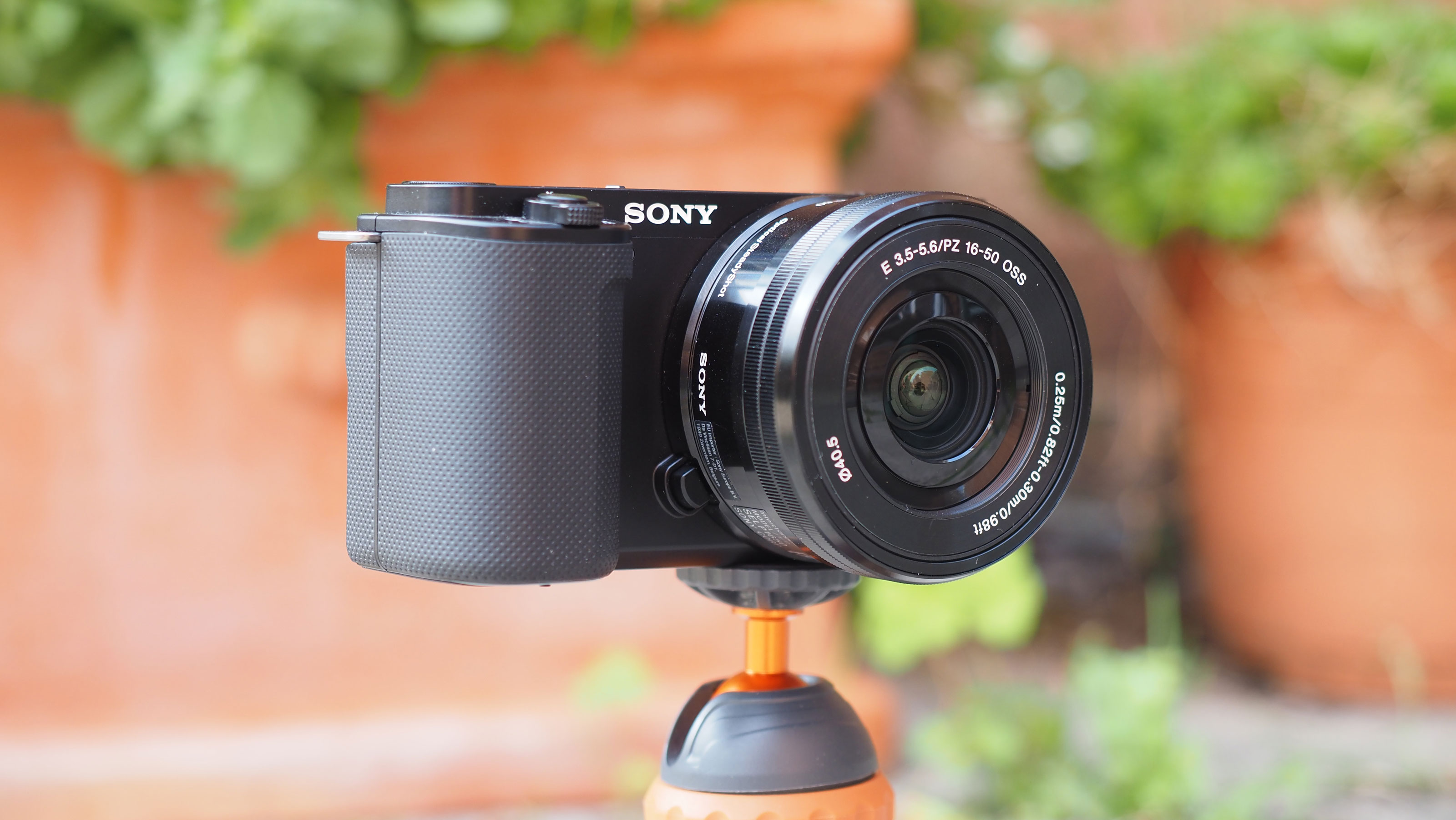
FAQs
Should I choose a DSLR or a mirrorless camera?
I'm always asked about DSLRs vs mirrorless cameras and which are better, especially for beginners. Well, both will give you a great start in photography. DSLRs are bigger, have better battery life, and are chunkier but cheaper – but are increasingly hard to find. In fact, I've only made one DSLR recommendation on this list: the Canon EOS Rebel SL3 / Canon EOS 250D.
Mirrorless cameras have surpassed DSLRs in almost every way and are smaller, lighter, better for video, and show you exactly what your finished image will look like while you're taking it. This makes them a better choice for beginners, as you can see in real time how changing the settings affects the exposure (rather than having to guess, and then check the back of the camera after you've taken a shot).
For a mirrorless option, I'd choose between the Canon EOS R100 and the Olympus OM-D E-M10 Mark IV. The R100 is essentially the mirrorless replacement for the SL3 / 250D, but is remarkably more advanced, and will get you started in Canon's brilliant ecosystem.
However, my personal recommendation would be the fantastic little Olympus. It offers some clever computational tricks, has built-in image stabilization (to correct camera shake and help you shoot in low light), and it's the most compact and lightweight system on the market – I used to own one of these, and I loved it.
What cameras do beginner photographers use?
Traditionally many beginner photographers gravitated towards the traditional "big two" camera brands, Canon and Nikon, and tend to favor DSLR cameras for their combination of competitive price and capable performance. In particular, the Canon EOS Rebel SL3 / Canon EOS 250D.
But the number of budget DSLRs available is reducing rapidly, as manufacturers concentrate on the newer mirrorless camera design of interchangeable lens cameras. There are some great mirrorless models at affordable prices now - and models that have impressed us recently include the highly-affordable Canon EOS R100, the retro-styled Nikon Z fc, and the multi-featured and attractively priced Olympus OM-D E-M10 Mark IV.
Should beginner photographers start with a phone camera?
The best camera phones are a great place for photographers to cut their teeth, as they're a straightforward way to teach basics like composition. However, to truly learn the craft of photography, a traditional DSLR or mirrorless camera is the best way to understand fundamentals such as aperture, shutter speed, and depth of field. Camera phones also tend to lean heavily on assisted processing of images, and most camera phones lack the ability to manually choose camera settings in the default camera application.
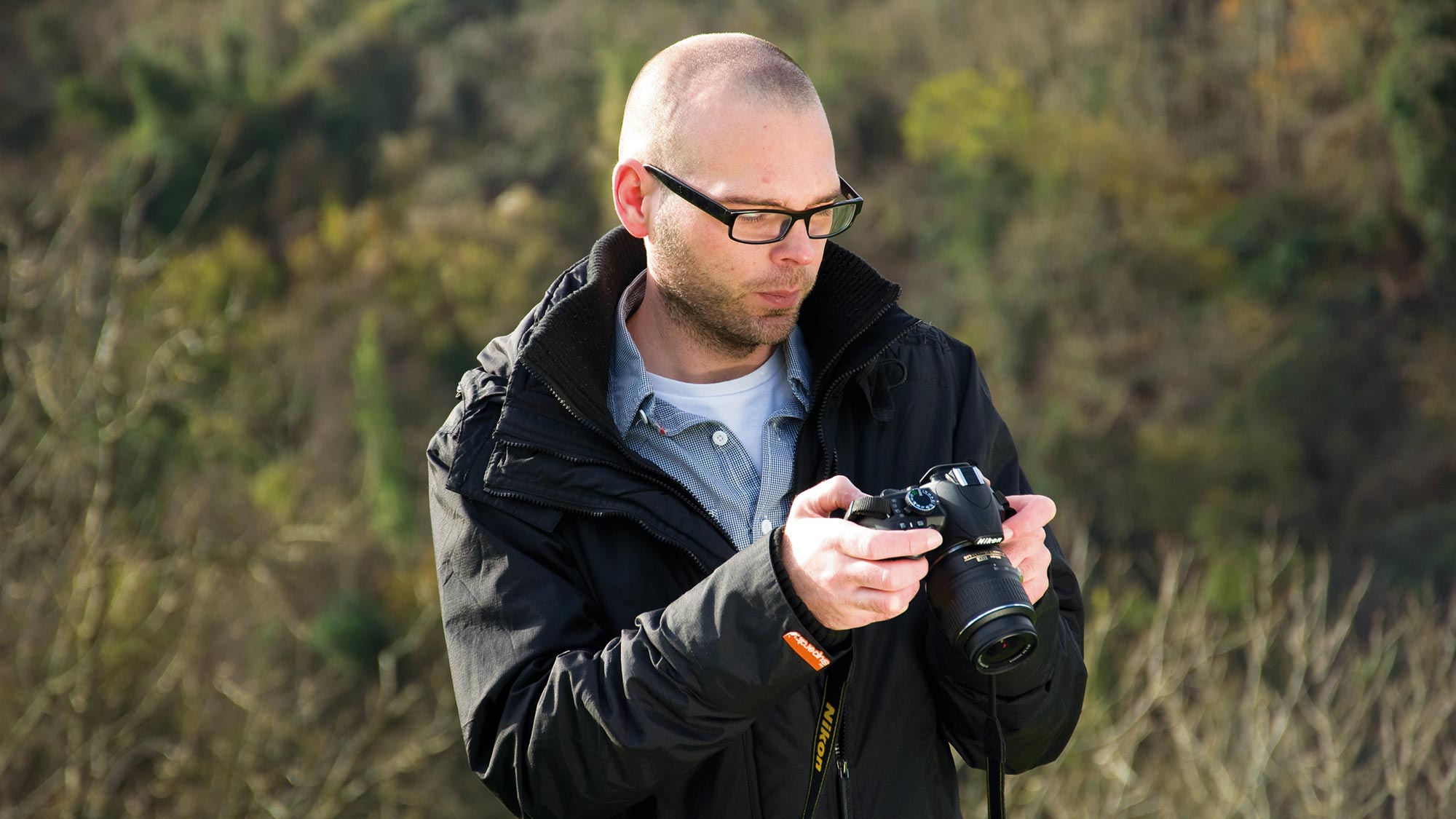
Should I get a full frame camera as a beginner?
Yes, while full-frame cameras are often described as professional cameras, there's no real reason for this association besides the price. Aside from this, there's no reason why you shouldn't start with a full-frame camera. Generally speaking, you will get a sensor with higher resolution, better image quality, and the ability to produce a shallower depth of field (for those blurry backgrounds).
Should a beginner buy an expensive camera?
This is a tricky question. Does a beginner need an expensive camera? No. But then, neither does an experienced photographer! Used well, even a beginner camera can deliver professional imagery.
Is Canon or Nikon better for beginners?
For a long time the camera industry was dominated by the "big two": Canon and Nikon, which ruled the roost with a market-leading range of cameras. So it was traditionally assumed that a good camera had to come from one of these brands. Those days are long gone, though, and today there's a much more even spread of great camera manufacturers – so there are great beginner cameras from Sony, OM System (Olympus), Fujifilm and others.
Still, if you really want to choose between Canon and Nikon, it's really down to personal preference. While you can't go wrong with either option, Canon has a better selection of beginner cameras, such as the Canon EOS R100 and Canon EOS R50.
How we test beginner cameras
Our lab team tests camera resolution, dynamic range, and noise under scientifically controlled conditions using two key testing tools: Imatest Master and DxO Analyzer. All DSLRs and mirrorless cameras are subjected to these tests and, in some instances, high-end compact cameras:
1. Resolution (ISO-12233): We use a resolution chart based on ISO-12233 from Applied Image inc to indicate the limit of the camera’s vertical resolution at the centre of the frame. The higher the value, the better the detail resolution.
2. Dynamic range (DxO Analyzer): This is a measure of a camera’s ability to capture detail in the highlights and shadows. We use DxO’s transmissive chart, which enables us to test a dynamic range of 13.3 stops.
3. Noise (DxO Analyzer): We use the dynamic range transmissive chart to analyze the signal-to-noise ratio for RAW and JPG files at every sensitivity setting using DxO Analyzer. A higher value means the signal is cleaner.
These lab results are an important part of evaluating every camera, but real-world use – and usability – is every bit as important. While it's important that a camera offers great performance, it's no good if it's too complex for a beginner to use!
Before my time on Digital Camera World I used to teach newcomers on photography workshops – so I've spent a lot of time with beginners and have a good understanding of what's important to them. So my recommendations in this guide are based on what the cameras are capable of, as well as how suitable they are for beginners who may never even have used a camera before.
Find out more about how we test and review on Digital Camera World
Today's prices compared
The best camera deals, reviews, product advice, and unmissable photography news, direct to your inbox!

James has 25 years experience as a journalist, serving as the head of Digital Camera World for 7 of them. He started working in the photography industry in 2014, product testing and shooting ad campaigns for Olympus, as well as clients like Aston Martin Racing, Elinchrom and L'Oréal. An Olympus / OM System, Canon and Hasselblad shooter, he has a wealth of knowledge on cameras of all makes – and he loves instant cameras, too.
